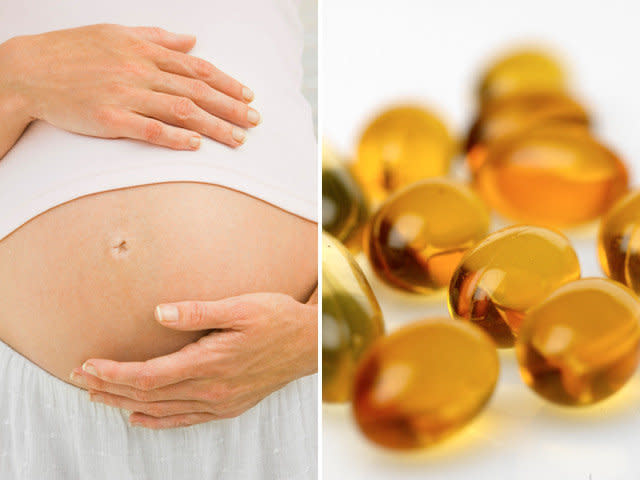Fish Oil During Pregnancy May Not Make Your Kid Smarter: Study

Taking fish oil during pregnancy may not result in thebrainy effect on kidsthat moms hoped for, a new study suggests.
Researchers from the University of Granada in Spain found that taking fish oil during pregnancy does not seem to increase the intelligence of their progeny once the kids hit six years of age. Their work was published in theAmerican Journal of Clinical Nutrition.
In the study, researchers followed up with women who were participating in the Nutraceuticals for a Healthier Life study. In that study, the womentook either fish oil, fish oil and a folate supplement, just folate or a placebo pill during the second half of their pregnancies, Reuters reported.
However, when the kids were six years old, they all performed about the same on tests measuring their smarts, researchers said.
"We observedno significant effect of supplementationon the cognitive function of children, but maternal DHA status may be related to later cognitive function in children," researchers wrote in the study.
Reuters reported that thechildren's diets were not measuredin the study, though, which could potentially skew the results. Dr. Ingrid Helland, of Oslo University Hospital who conducted earlier research on the subject, told Reuters that she would still recommend fish oil supplementation during pregnancy, even if the scientific proof that the kid's smarts will increase may not be there.
The findings fall in line with a study published last year in theJournal of the American Medical Association, which also showed that babiesdidn't have any better cognitive developmentor acquisition of language if their moms took fish oil during pregnancy, theLos Angeles Timesreported. In that study, researchers also found that DHA (docosahexaenoic acid, one of the omega-3 fatty acids in fish oil) didn't prevent women fromhaving postpartum depression.
However, there are other reasons to take omega 3s during pregnancy (besides hoping that it'll make your kid smarter). The American Pregnancy Association says that adding DHA and EPA (another one of the fatty acids) to pregnant women's diets could have a positive impact on both the "visual and cognitive development of the child." The standard "western" diet is usually not very high in omega-3 fatty acids, so pregnant women might be depleted in the nutrients if they don't supplement with it, the association said.
And a study published earlier this year showed that pregnant women who consume a lot of omega-3 fatty acids, whether from supplements or from actual food sources,decrease their newborns' risk of colds.
Omega-3 fatty acids are commonly found in fish, like salmon and tuna, as well as some plants and nut oils, though they are also available in supplement form. However, the American Pregnancy Association cautions thatsome fish may have high levels of mercury, a toxin, and that some fish oil pills have a higher quality than others, so pregnant women should be mindful about choosing the best kind of omega-3 supplementation.
For more on omega-3 fatty acids and their health benefits, clickhere.
RELATED:
This article originally appeared on HuffPost.

